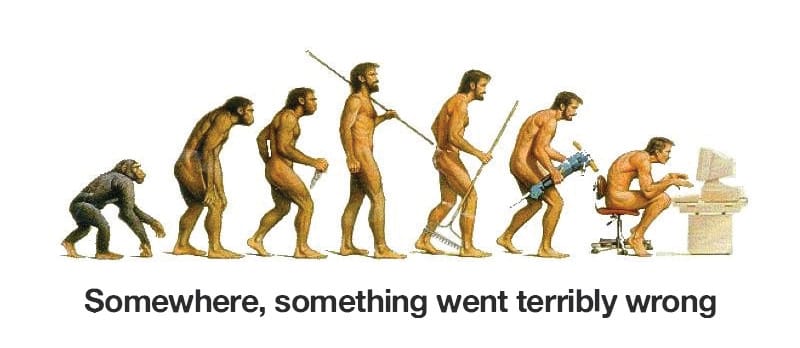The crippling effect of Technology
Max Eggl ruminates on the repercussion of our device addiction

This is a very interesting question I found myself talking about with a friend recently. Is technology really making us weaker, mentally and physically? If you consider that technology is part of the human condition, then you would disagree and I would be on your side. All the brilliant things that humans have invented really do make everything better (or do they? Sorry just had to put that cliché in). However if we only consider the human as the biological entity that makes him, is there a different story? Anytime new technology has come along, it has eased the segment of lives it affects, otherwise it would not really have been invented. Through making pretty much everything easier and doable, some people say that it has expanded the human border as well as enhanced the every day persons capabilities. Airplanes and cars have revolutionised travel, Internet has changed the way we communicate and exchange information and tablets have changed the way we interact with media. These are just a few examples of how certain areas that are a fundamental part of the average human life have been affected radically. In fact most of these effects have been very positive, giving us the possibilities to travel, talk and do things that would not have been possible in such scale even 50 years ago. The big question I always have in mind though is that, has technology on its own made the human being fundamentally weaker, more dependent on the devices and machines that surround them? Probably one of the most obvious ones is probably the effect that cars have had on the human body on the whole. There have been some interesting studies that seem to show a link between driving and obesity. Overlaying a map of obese adults in the US as well as the map of the percentage of commuters that drive, shows some striking trends. Is it then that perhaps due to the ease and speed of driving a car, that exercise (e.g. biking, walking) is shunned and this leads to a negative impact on the human body? I think that most of you would agree. However driving cannot be solely credited with causing obesity. Other factors also often linked with obesity like eating habits and lifestyle. However there also other technology factors that I could have mentioned instead, which would have shown similar trends! Given that nomophobia, a now recognised phobia that can lead to stress and anxiety in those that are without their phones, was prevalent in roughly half the population sampled by YouGov, implies a interesting trend, since the smartphone as such only really exists only about 10 years. The smartphone has become such a useful appendage that, even though it really does not add anything new to our lives, the lack of it is very apparent. Another interesting aspect of the smartphone with respect to our dependency on tech and perceived resulting weakness is related to how easily everything is accessible from literally everywhere. Some studies claim to show that this leads to a lower attention span. When you have instant access to anything you want, games, blogs, facebook profiles etc., as well as it being short and snappy, then when you really have to concentrate on something that may not be done in a similar manner may be very off putting. The last thing I would like to point out is the effect that the internet, and its easy sharing has had on our communication skills. Firstly, due to a rise of text speak, which I know all of us use, this current generation is more accustomed to using these abbreviations than the correct English. I have stopped counting how many times I actually had to correct my “you’s” from “u’s” in proper emails etc. . Maybe this is just the evolution of the English language, but it does seem to be leading to a weakening of the beautiful vocabulary that each language possesses. Another aspect of being on the internet permanently, is the fact that avoiding confrontations, is so much easier. If you want to escape a fight you just leave the site. This can lead to an erosion of real conflict solving skills, I mean if you never actually have to resolve anything, why would you ever learn how to? In contrast to confrontation, also normal conservations seem to have suffered. Recently I haven’t had a single conservation that wasn’t interrupted at some point by a text, tweet or facebook notification. I mean, its a form of comfort zone when you are sitting at a party on the couch, no one talks to you, and you pull out your phone. However how much is that really going to help you socialize? Without even trying, you are never going to learn anything! All these points are unstudied or at least unproven, and yet when I look at them they do seem to have some ring of truth. Even if they are not true, what would be the problem with putting your devices and gadgets once in a while? Do something that our ancestors have managed over thousands of years! What I am not saying is that we should do away with technology completely. Technology itself is a very useful tool that really does help. It has enabled humans to do so much. However the tool itself is not intrinsic good or bad, it is only as good as the purpose that it is used for and therefor what the human intends to do with it. In our society of instant gratification, humanity has fuelled its addiction for pleasure with the easy way out. However as always humans do it without any kind of restraint. As the saying goes, too much of anything is never a good thing









